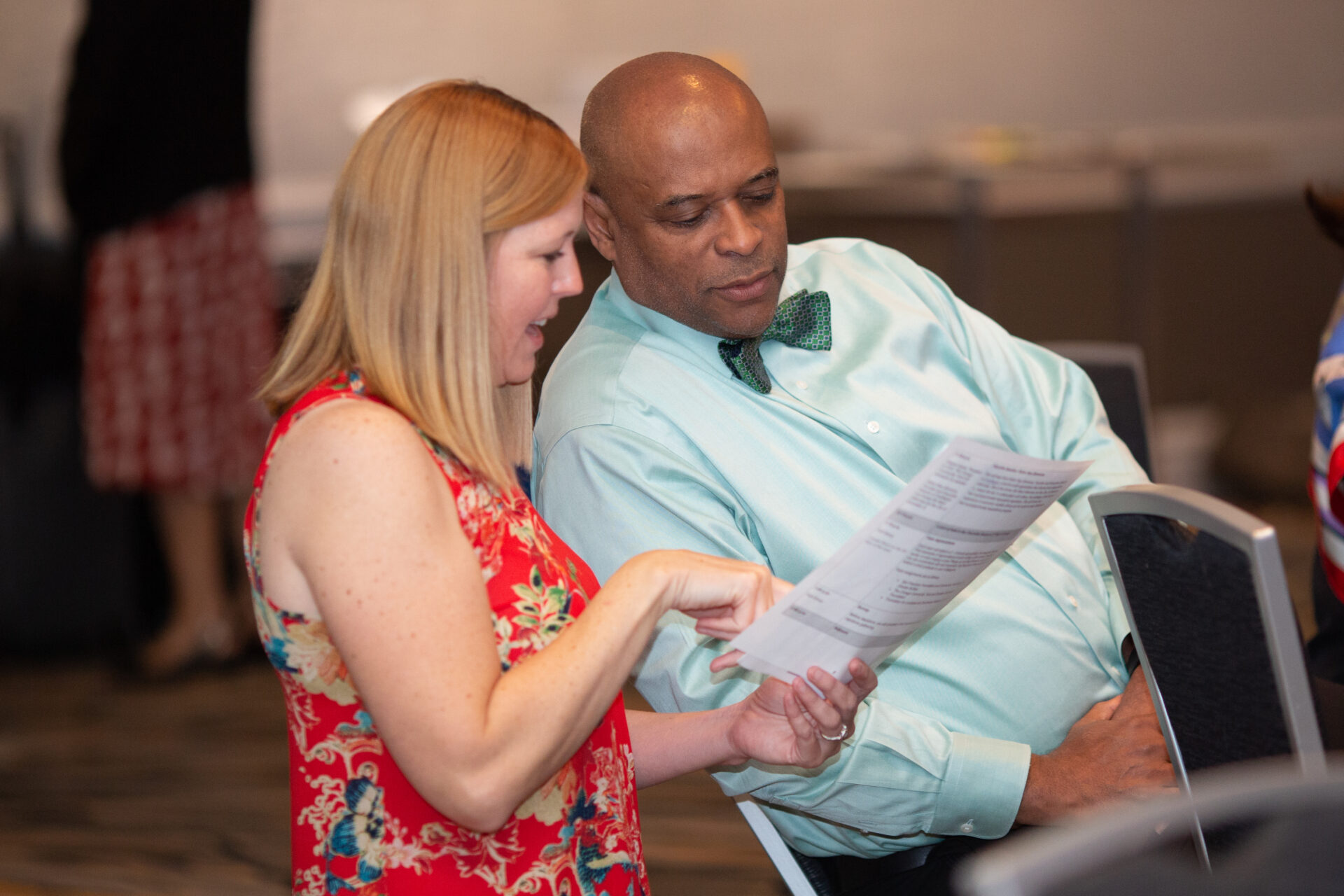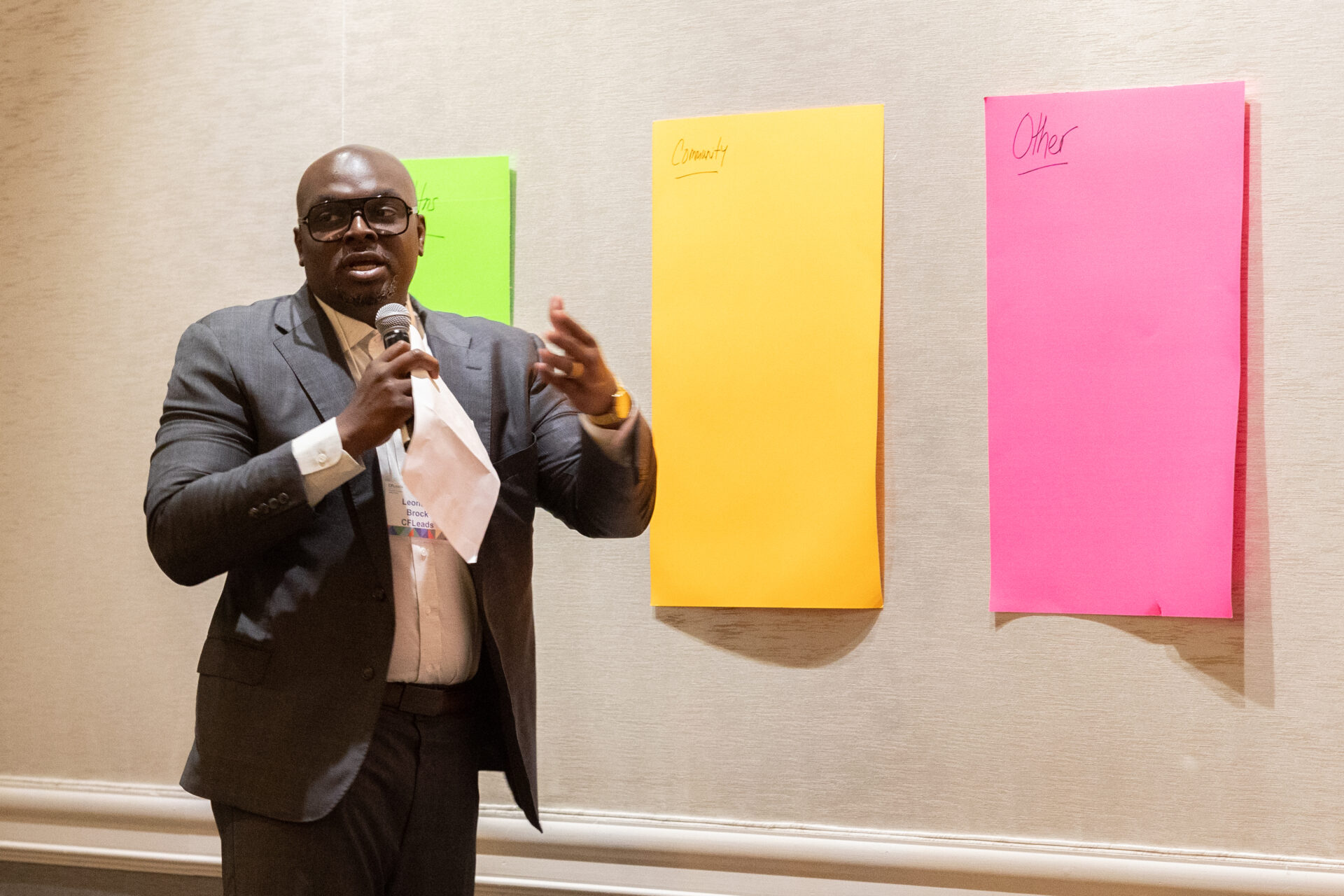Funded by the Bill & Melinda Gates Foundation, CFLeads is launching the second iteration of our Economic Mobility Action Network (EMAN), which is set to consist of two distinct cohorts of ten community foundations, each working to advance economic mobility with a focus on racial equity.
About EMAN
The CFLeads Economic Mobility Action Network uses our iterative, action-oriented peer learning approach that has been honed over a decade of programming. It is designed to help community foundations from across the country develop and refine an economic mobility agenda in their communities and build their foundation’s capacity to advance the work. Participating community foundations will also work together with a focus on racial equity in economic mobility and receive a capacity-building grant.
View the success of the pilot Economic Mobility Action Network.
Structure
Following the completion of a comprehensive application, selected community foundations will be placed in either an Intermediate or Advanced cohort based on self-identification and interviews with CFLeads staff. Participating community foundations should expect to actively engage in:
- Year-long learning network, September 2024 – October 2025 depending on cohort
- Three in-person network meetings; one virtual orientation meeting; additional virtual discussions with CFLeads staff
- Technical assistance resources and support
- Focus on advancing economic mobility using a racial equity lens
- Emphasis on CFLeads’ five community leadership competencies
- Exploration of data tools and economic mobility best/promising practices
Each community foundation team will consist of four-five people, including:
- The community foundation’s president/executive director/CEO;
- A senior staff member at the community foundation;
- At least one community foundation board member, although the board member(s) can vary meeting-by-meeting;
- A government [advanced] or community [intermediate] partner; and
- A data scientist, manager or staff person responsible for measurement, learning and evaluation* (please note: this can be an internal staff person or another community partner)
*The senior staff person may also serve as the data scientist/manager, thus, limiting the size of the team to four people.
There is no cost to participate if selected for the Economic Mobility Action Network.
Benefits of Participation
Through participation, each community foundation will have the opportunity to:
- Have a better understanding of strategies that increase economic mobility.
- Expand use of CFLeads’ five community leadership competencies and use them in a more refined manner.
- Participate in facilitated conversations with peer community foundations designed to help you build strong connections for problem-solving and collaborative action to advance economic mobility.
- Together with network participants, help demonstrate the value of strong local-national partnerships in advancing economic mobility locally.
- Develop an Economic Mobility Action Plan that your community foundation can use to monitor progress toward meeting your objectives and deliverables.
- Receive a capacity-building grant.


Current Content Partners
Participating community foundations will have the opportunity to explore using data tools and resources to further their economic mobility work with three priority public goods:
Urban Institute
Urban Institute’s Mobility Metrics Framework: This framework identifies key conditions within a community that have the power to propel people and families out of poverty and narrow racial inequities. The framework also provides a set of interrelated, evidence-based metrics that community foundations can use to establish priorities, mobilize action, and assess their progress toward cultivating conditions that support greater mobility from poverty.
Results for America
Results for America’s Economic Mobility Catalog: This resource contains summaries of over 50 high-level strategies and nearly 200 specific practices and programs that have demonstrated positive results in advancing economic mobility. For every strategy, practice, and program, the Catalog synthesizes the relevant research, identifies best practices in implementation, and aggregates additional resources for users interested in learning more.
Opportunity Insight
Opportunity Insight’s Opportunity Atlas: This resource is a comprehensive Census tract-level dataset of children’s outcomes in adulthood using data covering nearly the entire U.S. population. For each tract, the Atlas estimates children’s outcomes in adulthood such as earnings distributions and incarceration rates by parental income, race, and gender. These estimates allow users of the tool to trace the roots of outcomes such as poverty and incarceration to the neighborhoods in which children grew up.
Current Cohorts
Advanced Cohort Participants
- ACT for Alexandria
- Cambridge Community Foundation
- Community Foundation for a greater Richmond
- Community Foundation for Greater Buffalo
- Community Foundation of Greater Dubuque
- Foundation For The Carolinas
- Innovia Foundation
- North Texas Community Foundation
- Rochester Area Community Foundation
- Scranton Area Community Foundation
Intermediate Cohort Participants
- Community Foundation Boulder County
- East Bay Community Foundation
- Fairfield County’s Community Foundation, Inc.
- Foundation for Appalachian Kentucky
- Greater Milwaukee Foundation
- Kalamazoo Community Foundation
- The Pittsburgh Foundation
- The Winston-Salem Foundation
- Wichita Foundation
- Yellow Springs Community Foundation
Contact
If you have any questions about EMAN or are interested in participating, please contact Leonard Brock at lbrock@cfleads.org or 617-226-9903.

Pilot Economic Mobility Action Network
The Pilot Economic Mobility Action Network was made up of six community foundation teams that came together to further an economic mobility agenda for their communities.
